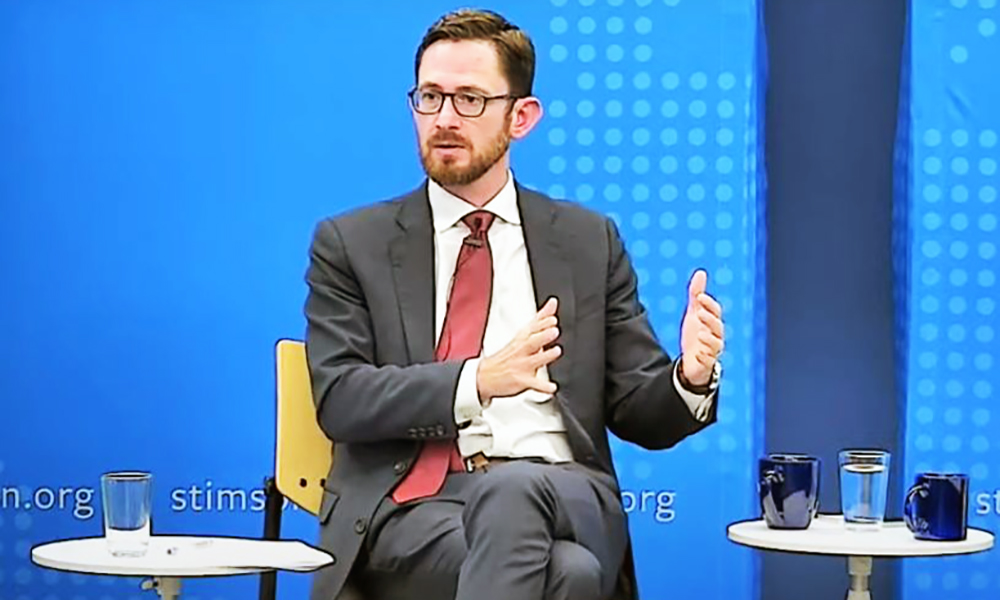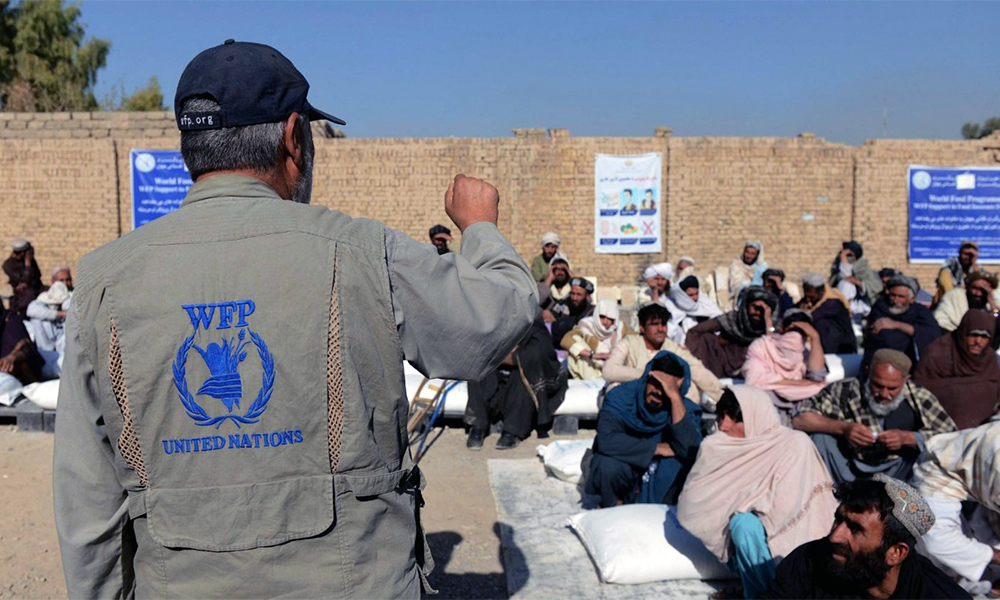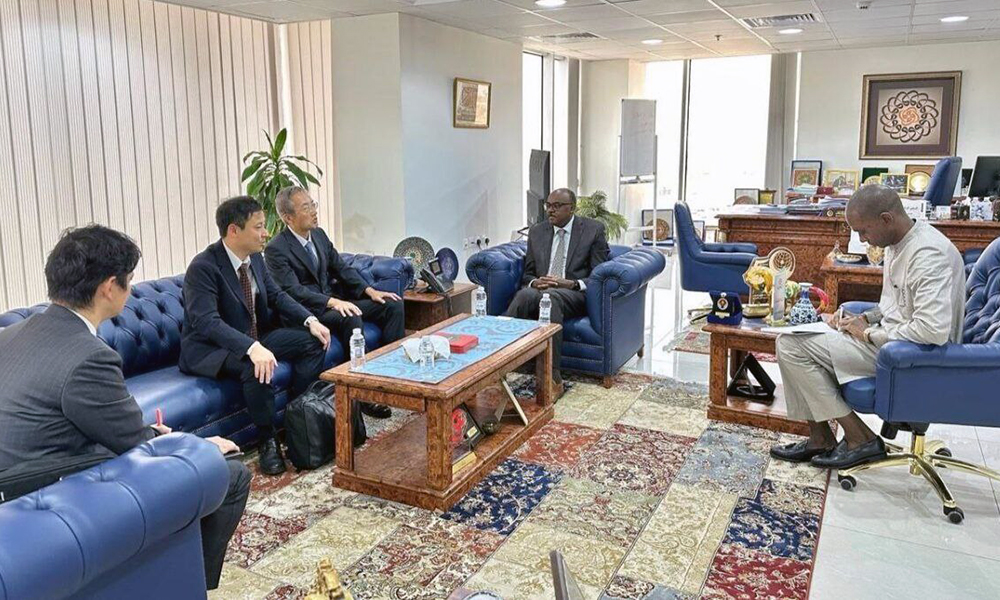Latest News
West says IEA needs to change policies in order to ‘normalize relations’

Washington’s special representative for Afghanistan said on Tuesday night that the Islamic Emirate’s quest for normalization of relations with the international community faces significant obstacles due to their policies.
Speaking at the Stimson Center, a nonpartisan think-tank in Washington, Thomas West said: “Steps toward normalization, I think, are not going to be possible. And I think there will remain remarkable unity among the international community until and unless we see a significant change in their (IEA) treatment of the population.”
West said the United States was not leading the global consensus for nonrecognition but has a set of conditions that are unfulfilled by the IEA.
“First, the Taliban (IEA) need to fundamentally fulfill their security obligations,” West said, adding that while al-Qaeda had been reduced to a “historic nadir” since it moved to Afghanistan from Sudan in 1996, concerns persist about other terror groups still operating in the country.
West also highlighted the necessity for the IEA to establish a more inclusive political system and guarantee women’s rights to education and work.
He also said meaningful reforms and changes in the country should originate from within Afghanistan rather than being imposed through external pressure.
“If a change has to occur on allowing women to return to secondary schools, girls’ secondary schools, and then to university, it’s going to come from inside the country. It is not going to come because I asked for it. … It will be an internal matter,” he said.
West meanwhile acknowledged the active role played by several majority Muslim countries, such as Qatar and Indonesia, as well as the Organization for Islamic Cooperation (OIC), in engaging the IEA on women’s rights issues.
Last month, an OIC delegation of Islamic scholars from some Muslim-majority countries visited Afghanistan to try to persuade Islamic Emirate officials to lift the ban on women’s secondary education and work.
Latest News
14 kms of TAPI pipeline laid inside Afghanistan, says project manager

Baganch Abdullayev, the General Director of the TAPI project in Afghanistan, on Thursday met with Noor Ahmad Islamjar, the governor of Herat, for a report back on progress made in accelerating the pipeline-laying process of the Turkmenistan-Afghanistan-Pakistan-India project in the province.
The Herat governor’s press office said in a statement that Abdullayev shared a brief report on the progress of the TAPI project with Islamjar.
According to the statement, Abdullayev said so far 14 kms of pipeline has been laid while an additional 24 kms of ground has been levelled for the pipeline.
During the meeting, the governor of Herat also welcomed the efforts of TAPI project officials in advancing the work and assured the project head of the local administration’s full support in facilitating the swift progress of the project.
Once completed, TAPI pipeline will transport natural gas from the Galkynysh Gas Field in Turkmenistan through Afghanistan into Pakistan and then to India.
The pipeline was completed on the Turkmenistan side in 2024, and the project is currently expanding southbound in Herat Province of Afghanistan.
Latest News
WFP appeals for $25 million to help support Afghan returnees amid humanitarian crisis

The World Food Programme (WFP) this week issued an urgent appeal for $25 million to address the escalating needs of Afghan refugees being expelled from Pakistan.
According to the WFP, thousands of Afghan families are crossing into Afghanistan from Pakistan every day and face serious food insecurity.
The organization also stated that millions in Afghanistan are grappling with severe hunger, and immediate aid of $25 million is needed to assist returnees.
On Wednesday, April 23, in a video shared on X, WFP’s head in Afghanistan, Mutinta Chimuka, visited the Torkham border crossing with Pakistan. During her visit, she highlighted the challenges faced by returnees, many of whom have spent their entire lives in Pakistan and are unfamiliar with Afghanistan.
Chimuka pointed out that many returnees have no income, employment, food, or shelter.
The WFP stressed that thousands of families are being forced to leave Pakistan, while 15 million people in Afghanistan are uncertain where their next meal will come from. The situation has become dire, with basic needs going unmet for a large portion of the population, the WFP said.
Chimuka warned that current aid efforts are insufficient to support the returnees, and new financial resources are urgently needed to address their needs by the end of the year.
Meanwhile, the pace of deportations and expulsions of Afghan migrants from neighboring countries, particularly Pakistan, continues to increase. The Pakistani Ministry of Interior reported that over 100,000 Afghan migrants have been returned since April 1.
The International Committee of the Red Cross (ICRC) has also raised alarm, noting that while thousands of refugees return every week, there are millions of Afghans who are currently facing poverty, homelessness, and difficult living conditions.
Latest News
Tarig Ali Bakheet and Japan’s Deputy Foreign Minister discuss Afghanistan’s situation
Both sides emphasized the importance of continued collaboration to address the urgent needs of the Afghan people.

Tarig Ali Bakheet, the Special Representative of the Organization of Islamic Cooperation (OIC) for Afghanistan, met and held discussions with a Japanese delegation led by Masayuki Kamada, Deputy Minister for Foreign Affairs of Japan, regarding the situation in Afghanistan.
According to a statement by the OIC, the meeting mainly focused on the current situation in Afghanistan and explored ways to enhance humanitarian cooperation between the organization and Japan.
Based on the statement, both sides emphasized the importance of continued collaboration to address the urgent needs of the Afghan people.
The meeting took place at the office of the OIC Special Representative for Afghanistan in Jeddah, Saudi Arabia.
The statement also noted that the Consul General and Deputy Consul General of Japan in Jeddah were part of the Japanese delegation.
-

 World4 days ago
World4 days agoThousands of protesters rally against Trump across US
-

 Latest News4 days ago
Latest News4 days agoPolio vaccination campaign launched in Afghanistan
-

 International Sports2 days ago
International Sports2 days agoIPL 2025: Robo-Dog ‘Champak’ explained
-

 International Sports4 days ago
International Sports4 days agoIPL 2025: 14-year-old Vaibhav Suryavanshi becomes youngest IPL player
-

 Latest News3 days ago
Latest News3 days agoChina invites various Afghan delegations to attend Shanghai forums
-

 Latest News3 days ago
Latest News3 days agoAriana Afghan Airlines increases flights to China
-

 World3 days ago
World3 days agoPentagon chief Hegseth shared sensitive Yemen war plans in second Signal chat, source says
-

 Regional3 days ago
Regional3 days agoJD Vance arrives in India, to hold talks with Modi under US tariffs shadow
























